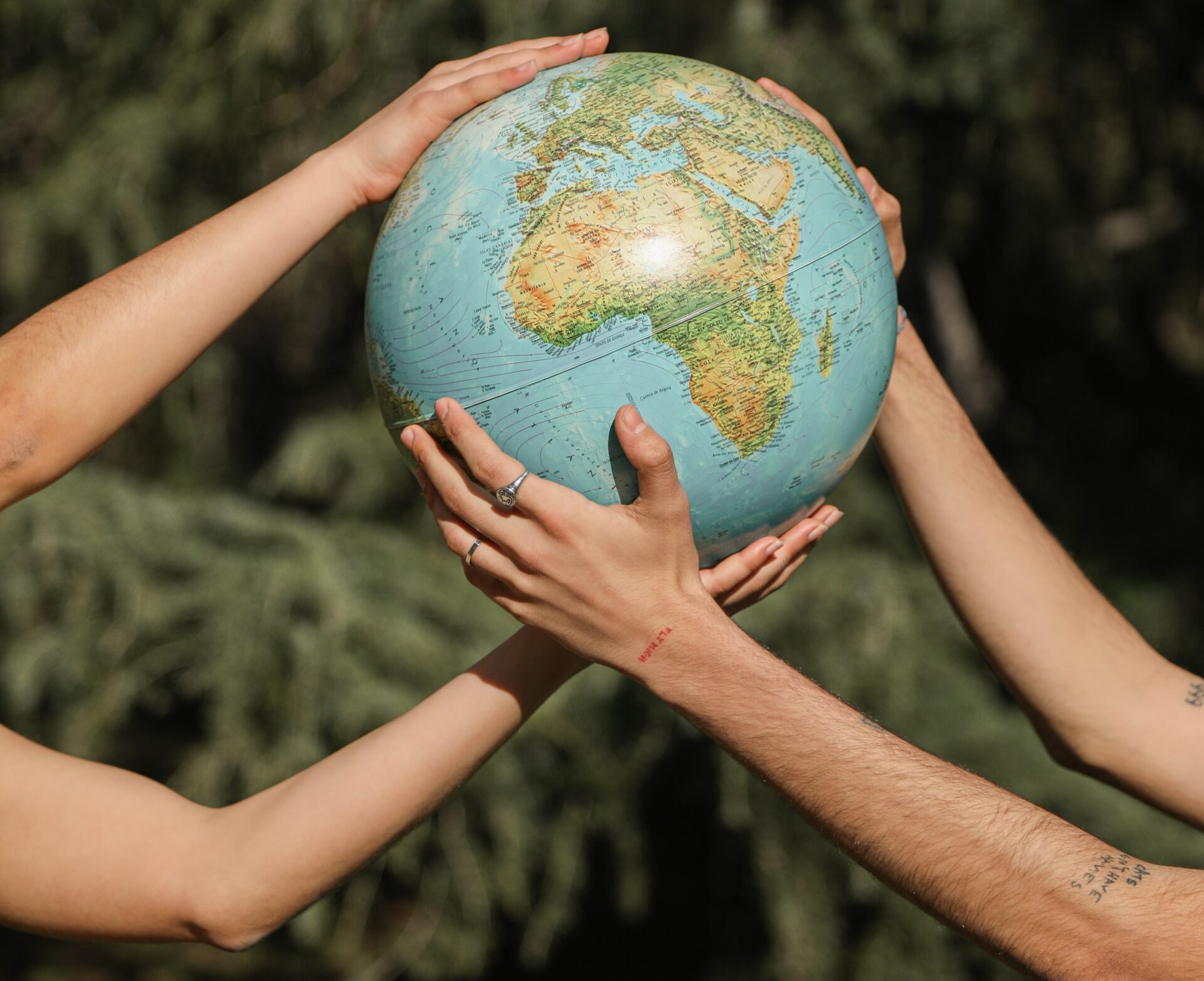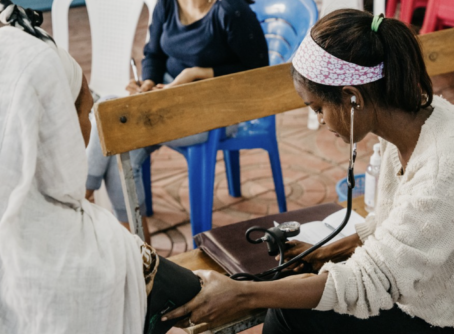
Upon starting a recent conversation with fellow Christians on the importance of environmental justice, I received bewildered looks signaling that they were not familiar with this term. In another instance, a friend of mine visited a church, where the speaker speculated that environmental justice meant we owed the earth oxygen in exchange for what it provides us, which is quite different from the intended definition of environmental justice. As instances like these illustrate, although there is a growing number of Christian environmental justice advocates, there are still many Christians who misinterpret or are simply unaware of this relatively new term. Environmental justice is often seen as a less important issue compared to other social issues that plague our society, and, thus, is tossed to the side. However, comparing environmental justice to other social issues is faulty because it largely intersects with each of them, as well as with the Christian faith. Yet the idea, for example, that minimizing our waste and carbon footprint presents us with an opportunity to love our neighbors well through the daily choices we make has not been embraced by many Christians.
The United States Environmental Protection Agency (EPA) defines environmental justice as “the fair treatment and meaningful involvement of all people regardless of race, color, national origin, or income, with respect to the development, implementation, and enforcement of environmental laws, regulations, and policies.” The manifestation of environmental injustice prevalent in our society is largely connected to issues of climate change, which disproportionately affect low-income communities and communities of color. An immense part of environmental injustice is environmental racism, which Benjamin Chavis, an African-American civil rights leader, defined as: “…racial discrimination in environmental policy-making, the enforcement of regulations and laws, the deliberate targeting of communities of color for toxic waste facilities, the official sanctioning of the life-threatening presence of poisons and pollutants in our communities…” A study published by the EPA found that communities living below the poverty line have a 35 percent higher burden from particulate matter emissions, an air pollutant, than the overall population. Non-whites had a 28 percent higher health burden and African Americans, specifically, had a 54 percent higher burden than the overall population. For example, in Pittsburgh, poor and minority neighborhoods see higher rates of deaths from air pollution. Over 12,500 facilities in the United States use or store large quantities of extremely dangerous chemicals, people living at the fenceline of these chemical facilities face the greatest dangers. People of color make up nearly half the population in fenceline zones, and they are almost twice as likely as whites to live near dangerous chemical facilities. In a historically Black town in rural Alabama, toxic waste is being dumped by out-of-state developers and is impacting the residents’ health.
Much of the environmental injustice is a result of systemic racism that permeates institutional policies and practices, and many structural changes must come through government policies and programs if we are to work towards environmental justice. A month ago, the EPA announced that it is establishing a new Office of Environmental Justice and External Civil Rights. The new Office of Environmental Justice and External Civil Rights is the Biden administration’s most recent effort to rectify the disproportionate harm caused by pollution and climate change in communities of color and low-income cities, towns, and counties. Michael S. Reagan, the EPA administrator, expressed his plan to ensure that all new air, water and chemical safety regulations would now be written with provisions that try to mitigate the impact of environmental damage to poor and minority communities. The new office follows the launch of several other initiatives designed to address the impacts faced by those living in underserved communities overburdened by pollution, among them is the first-ever White House Environmental Justice Advisory Council (WHEJAC).
The government’s recent robust commitment to environmental justice is encouraging. However, the solution to environmental injustice does not only lay in the hands of the government, but also in each of our daily choices, the choices of businesses, schools, nonprofits, churches, and other organizations as well, and whether these choices reflect respect and love for our neighbors. Public justice insists that each sphere of human responsibility is to be upheld by both political and non-political communities. The Center for Public Justice’s (CPJ) Guideline on Environment addresses both our civil society and government. It states: “Human wellbeing depends on a clean environment. Accordingly, love of our neighbors, including future generations, forbids pollution and other degradations that may do real human harm.” Our human activities occur within a larger, global context and affect our next-door neighbors as well as neighbors across the world. It is no surprise then that the way we treat and care for the environment around us in our day-to-day lives affects the way we care for our neighbors. In 2015, Pope Francis issued a papal encyclical letter in which he expressed how “insuperable the bonds were between concern for nature, justice for the poor, commitment to society, and interior peace.” The government has a distinct responsibility to enact laws that uphold justice, but it is civil society that has a role to play as well in encouraging environmental justice. I believe informed Christian communities and organizations can be powerful advocates of environmental justice, but to make an impact, there must be a greater push. There is much that can be done for environmental justice by non-political communities, and the Christian community has a crucial role to fill.
An admirable organization working hard to fill this role is Creation Justice Ministries. Creation Justice Ministries represents the creation care and environmental justice policies of major Christian denominations throughout the United States. They educate, equip and mobilize Christian individuals, congregations, denominations, and communions to protect, restore and rightly share God’s creation. The organization has multiple campaigns, including the Environmental Health and Toxics initiative which states: “We are called to be stewards of Creation (Genesis 2:15) and of our bodies (1 Corinthians 6:19-20). We are also called to care for the most vulnerable to toxic chemical exposure – women, children, low income communities, communities of color, people living with disabilities or compromised immune systems (Matthew 25:40).” Their website has many resources on how to bring about justice for God’s planet and people.
This November, Shared Justice is doing a series on environmental justice, including an interview with Grace Capital City Church about their Creation Care Ministry, and an article explaining how different generations should become involved in environmental justice and why Gen-Z has recently been the spearhead in the movement. These articles will consider how environmental justice can take shape when Christians commit to seek the good of their neighbors and glory of God in their environmental stewardship. I am hopeful that the Christian community will come together and, not only be environmentally conscious, but also influence others to do the same. To quote Pope Francis again: “Christians are well-positioned to lead on matters of social and environmental justice because we are called to be like Jesus, who emphasized caring for each other and the environment.” Minimizing our waste and carbon footprint, engaging in conversations to raise awareness, and praying for God’s creation presents us with an opportunity to love our neighbors well through our daily lives, so why wouldn’t we take it?
Sofia Timina is a faith-based child care research fellow at CPJ. She recently moved to the D.C. area to be part of the Fourth Fellows program. She graduated from Gordon College in May with a B.A. in international affairs & political science.





